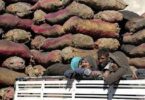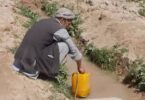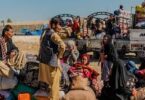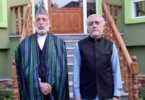Monitoring Desk
KABUL: People in the eastern parts of Afghanistan are still bypassing state-run judicial institutions and prefer to settle their disputes through Jirgas, traditional assemblies of leaders or elders.
Tribal elders in distant regions of Afghanistan, specifically in eastern and southeastern provinces believe that they have inherited the Jirga from their ancestors and they highly value the decisions which are made at Jirgas.
TOLOnews reporters Tamim Hamid and Abdulhaq Omeri who visited some south and eastern regions of Afghanistan in March tried to draw a clear picture of how the Jirga really works in resolving or mediating the issues between people.
Dand Aw Patan is a key district in eastern Paktia province which is located alongside the Durand Line. People in this area try to contribute in restoring security and improving law and order.
In a sunny day, over 40 people gathered to convene a Jirga in suburbs of Dand Aw Patan district to settle a problem. But within few minutes, some elders from another tribe came and tried to dissolve the Jirga as they claimed that the land where the Jirga is held is a disputed land between two tribes.
Jirga members who represent two tribes in the area worried that the Jirga could also decide on the fate of the disputed land, therefore, they try to disrupt it. But the opposition by the rival tribes finally worked and Jirga members chose another place to organize their meeting. People from all ages including children are witnessing the Jirga proceedings.
The Jirgas are mostly organized in open places under the chairmanship of a tribal elder and in some cases the Jirgas are presided by several elders from several tribes.
“Over the course of history, the decisions which are taken by our ancestors are still in its place. So these tribes still abide by those decisions,” said Malik Jahid, a tribal elder in Dand Aw Patan.
The decision which is taken by the Jirgas are resolute and no party is allowed to violate the decisions. If someone is found guilty of violating the Jirga verdicts, they will face fine or punishment. But sometimes, the issues are not settled in one Jirga meeting.
“In Paktia, government or Sharia (Islamic law) decisions are not important as much as Jirgas’ decisions,” said Mohammad Amir, a tribal elder in Paktia.
“These Jirgas bring peace among those tribes who fight each other, they help to end bloodsheds. There is no corruption in these Jirgas,” said Khan Mohammad, a tribal elder in Paktia.
Since long times, residents of distant parts of Afghanistan, as well as former rulers, have seen Jirgas as a symbol of their authority and the spread of ties with the people.
Even today, the governments prefer to hold Jirgas when it comes to creating consensus on some major important national issues.
As a recent instance, the Afghan government is all set to hold a Jirga of 2,500 delegates from around the country to determine the path towards peace in Afghanistan. (TOLOnews)






